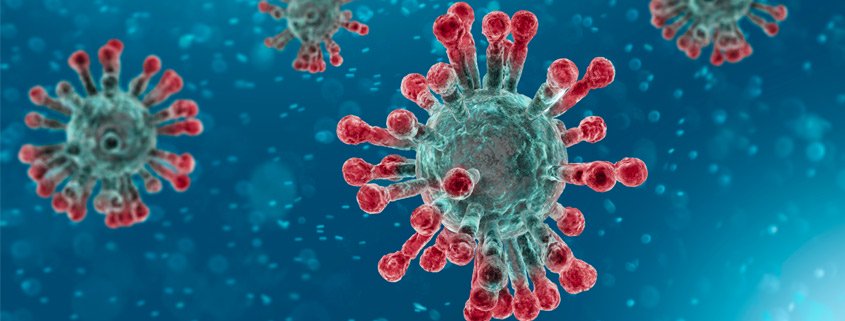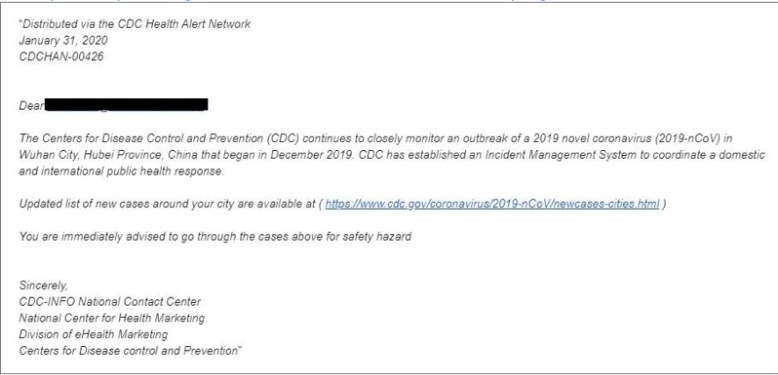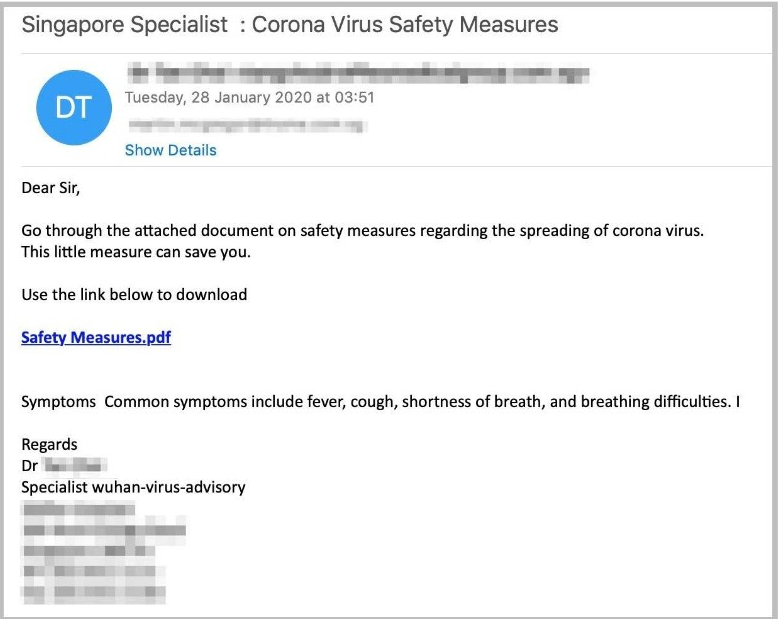
While the world is struggling with the global Coronavirus pandemic, certain malicious agents are taking advantage of the panic among the citizens. Coronavirus phishing scams are on the rise these days.
Cybercriminals may send you emails that ask you to open a document to review latest statistics about the novel COVID-19 virus. If you click on the attachment or embedded link, you are likely to download the malicious file onto your system.
The CDC is alerting everyone to keep an eye out for suspicious emails like below.

Hackers may also try to send you emails containing files that claim to be coming from medical experts stating latest information about the virus.

Tips to recognize and avoid scammers and stay alert from Coronavirus phishing attacks (or any phishing attack in general)
- Do not give out your personal information to strangers on the Internet or download unknown apps from the app stores. These apps are notorious in collecting user data that ultimately gets in the hands of the attackers.
- Check the email and sender of the email that you have received. Typical phishing scams have broken English and do not come from reputed or known source but try to masquerade as one. You can find more information on phishing attacks in my previous article here.
- Avoid emails that ask you to act urgently. It is easy to enter a state of panic due to the current global situation. If you get such message, remain calm and delete the message.
- Look for generic greetings in emails. Phishing emails typically address you as ‘Dear Sir’ since these are email blasts sent to random people in their database.
- Ignore online offers for vaccinations. There currently are no vaccines, pills, potions, lotions, lozenges or other prescription or over-the-counter products available to treat or cure Coronavirus disease 2019 (COVID-19) — online or in stores.
We need to believe facts and not random ‘Whatsapp forwards’ in a crisis like these. Some fact based reporting websites is the CDC’s own website or the FTC website.
Very gd and informative article. Thanks for sharing. Liked the tips u have given to recognize scams. We will definately follow.
Grt . U have nicely explained how to save urself from corona scam. Thanks for sharing.